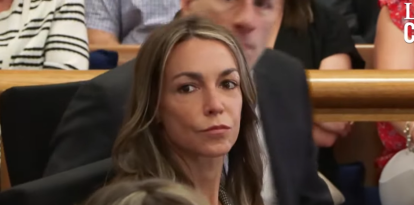Elite universities form shadow collective to counter Trump administration
A group of university leaders, including presidents and trustees, initiated private meetings to coordinate a common strategy in the face of recent federal government demands on funding and academic autonomy.

Reference image of the Harvard Coop store in Cambridge, Mass
Leaders of major U.S. universities have formed a shadow collective in order to stand up to President Donald Trump and his administration.
According to The Wall Street Journal, ten universities across the country, including some Ivy League schools and other well-known private research think tanks, are banding together to map out a plan and prevent university leaders from ceding independence and autonomy to the Trump administration, responsible in recent weeks for freezing multimillion-dollar funds to universities accused by the government of not fighting antisemitism sufficiently.

Politics
Princeton, cuarta universidad del Ivy League amenazada con recortes federales
Santiago Ospital
According to the report, the point of no return for the universities was the requests the Trump administration made to Harvard to unfreeze the multimillion-dollar research funding it paused.
For university leaders, the federal government's demands crossed a line, threatening Harvard's independence.
The private collective, made up of top university leaders, including individual trustees and presidents, for now, remains in the shadows, but some voices have already expressed enthusiasm for the universities' effort to unite against the Trump administration.
“I’m encouraged that they’re going on,” Ted Mitchell, president of the American Council on Education, said. “This kind of exchange helps institutions understand the impacts of government actions across campuses and to identify critical non-negotiables that have no place in government regulation.”
According to the WSJ, one of the group's primary motivations is to get as many universities as possible to join together to negotiate with the federal government as a united core rather than separately.
The primary objective is to establish the extent to which universities are willing to compromise to concede superficial victories to the White House. For example, should the time come to negotiate, leaders are clear that they do not wish to cede academic independence, including autonomy over student admissions, staffing and academic content.
Indeed, among the White House's demands on Harvard was an obligation to audit the university's hiring and admissions and evaluate the ideological diversity of its faculty. The university rejected the demands, and the administration proceeded to cut $2.26 billion in research funding.
He then threatened to revoke the university's tax-exempt status and, moreover, its ability to enroll international students. In response, Harvard sued the federal government, pending the first hearing in federal court in Boston.
Another motivation for the universities is to avoid a precedent even more negative than that of Columbia, which acceded to many of the requests of the White House, whose strategy so far is to put the houses of study under pressure one by one.


























